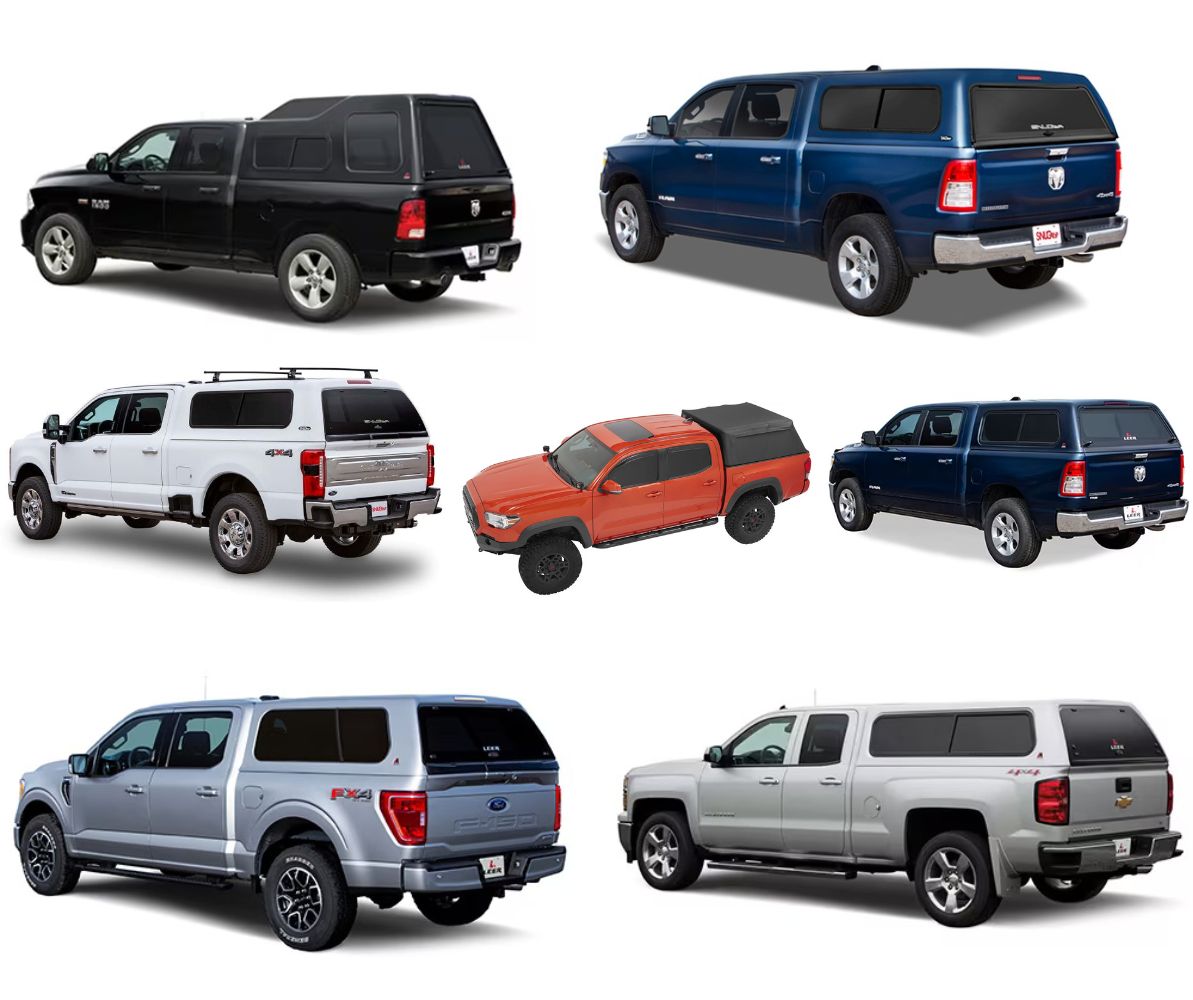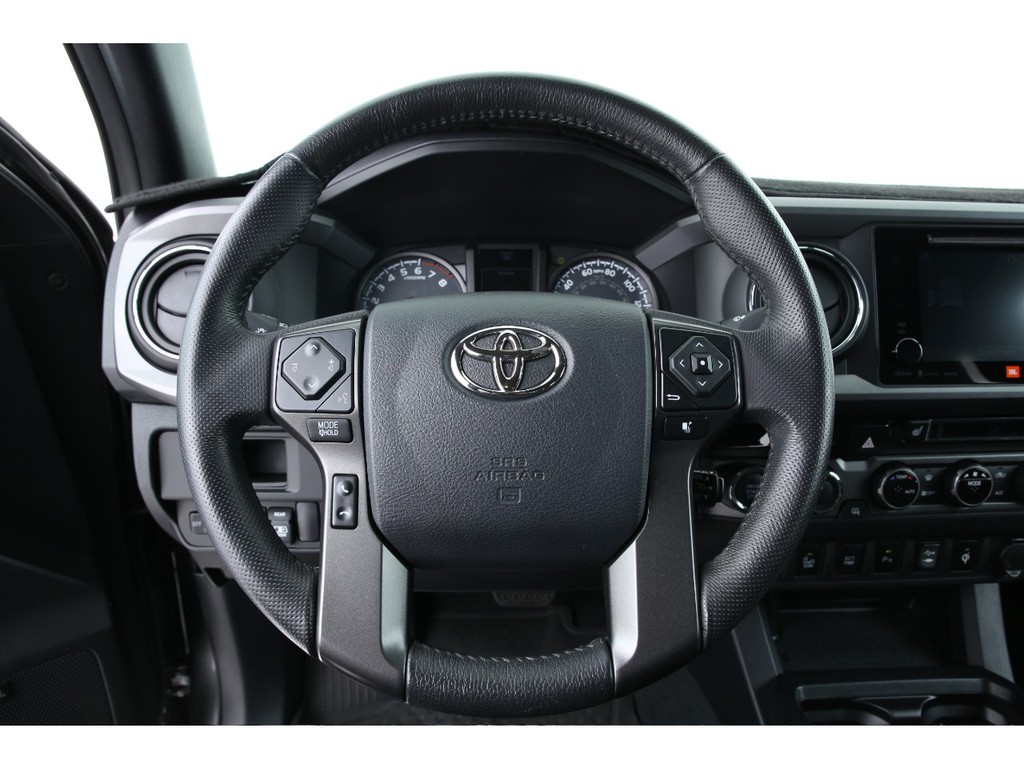When determining how much it costs to paint a Tacoma, many factors must be considered to get an accurate estimate of costs. If your Tacoma is a newer model with no damage and the paint is in decent shape, then the cost to paint it will be less than if you have an older Tacoma with dents, rust, worn molding, and other problems.
How Much Does a Paint Job Cost?
While you can get a cheap paint job, the more money you spend, the better the paint job and the happier you’ll be overall. For a good paint job, you’ll pay anywhere between $3,500 and $9,000 on up, depending on where you live and what work is being done. The cost is also dependent on how much work the car has to have done to get it ready to paint, if the color is being changed, if body parts needs to be removed, and whether you have to replace parts like seals, moldings, and other car parts.
How Long Does It Take to Paint a Car?
The time it takes to paint your Tacoma again depends on its condition. Extra time is needed to replace or repair parts, which can add up to over a month.
It is not unusual to have between 40 and 80 hours of labor involved in the paint job that didn’t need extra work.
Professional Painting or DIY
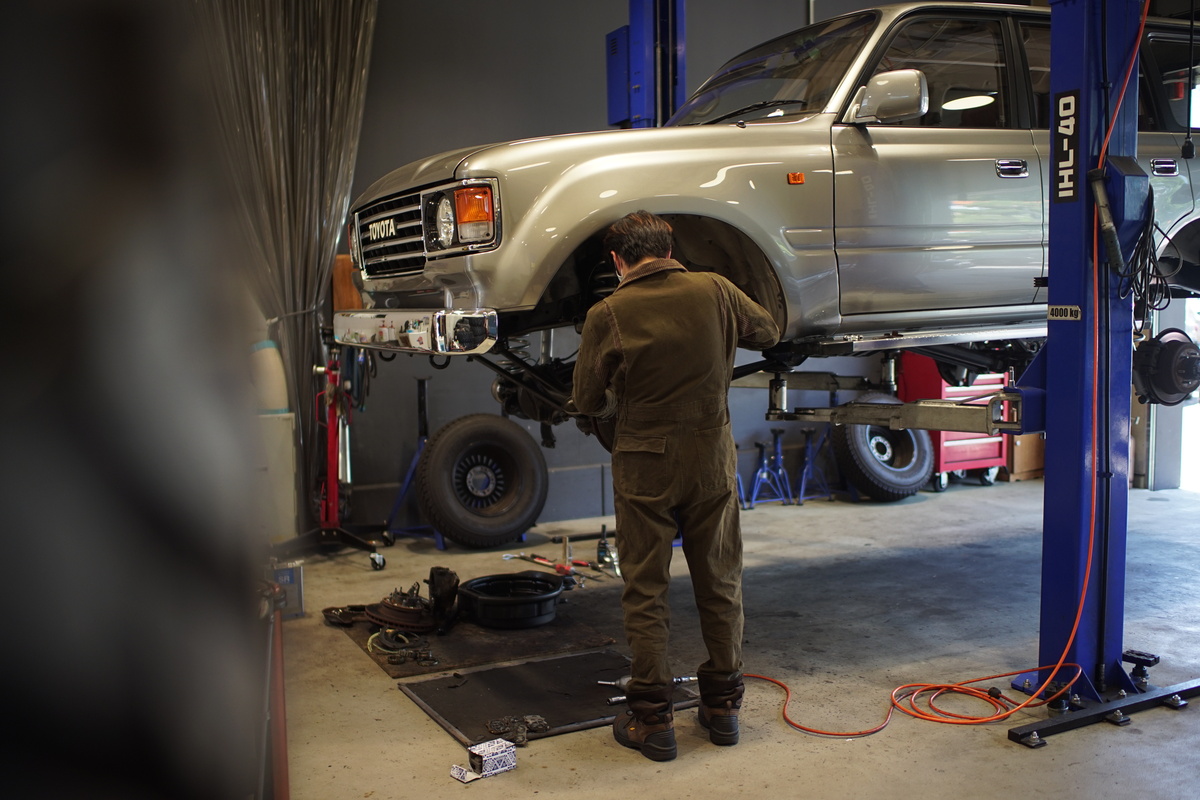
When you’re ready to paint your Tacoma, you must decide between doing it yourself and hiring someone to do a professional paint job.
Cost to Paint a Tacoma Professionally
As noted, the cost to do a professional paint job on your Tacoma can range from $3,500 and up. In addition to the paint cost, there are other expenses to consider.
Professional bodymen know how to straighten parts without damaging them and ensure your truck is properly aligned. They know how to bang out dents and fix creases without damaging the rest of the part, and they know how to apply fillers skillfully for a smooth finish.
A professional painter has the experience to do the necessary prep work, the tools to apply the paint for complete coverage without blemishes or runs, and the knowledge to know when a part needs replacing instead of repairing. They also know how to blend paints and choose the proper paint to get the results you want.
Cost to Paint a Tacoma Yourself
If you’re willing to do the work yourself, you can save money on the cost of labor, and the paint could cost less than $1,000. Lower-quality paints will be less expensive, but they may not last as long as good paint.
Any money you save in material and labor costs will cost you in personal time, so you need to decide how much time you want to put into this project.
If you plan on doing the job yourself, you can expect to spend hours, even days, removing the old paint that can prevent your new paint from sticking, sanding down the body parts to smooth them out, and you’ll need a dust and dirt-free place where you can paint. Before you can even start painting your Tacoma, you have to take it down to the bare metal and prepare it for a primer coat.
In addition, you’ll need tools like an airbrush, spray gun, a compressor, primer, paint, clear coat, sandpaper, filler, paint masks, and other items like rags and mallets.
Various Factors That Determine the Cost of Painting a Toyota Tacoma
Here are some of the basic factors that determine the cost of painting a Toyota Tacoma:
Paint quality
The cheaper the paint, the less quality you’ll have in the finished product.
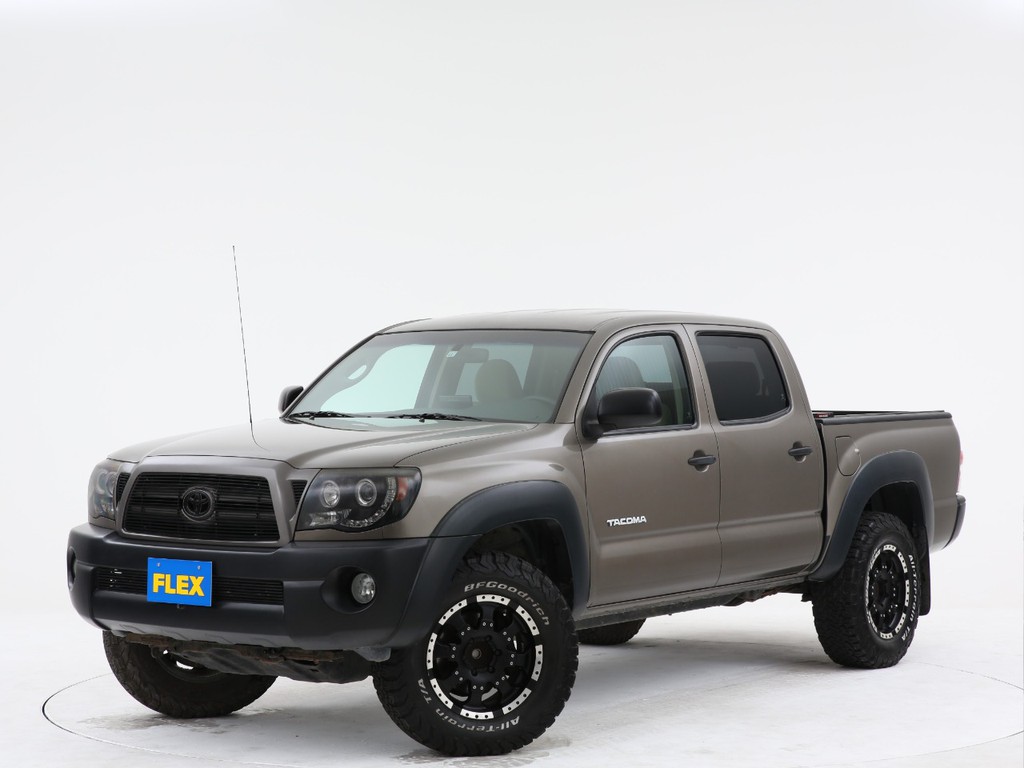
Prep work
The more work the body of your Tacoma needs before you paint, the more it costs to get the truck ready for the paint booth. Proper prep work will affect the quality of the finished paint job.
Labor rates
The more work you need to do, the higher the labor rates, and hourly labor rates are spread over several aspects of the job, like metal repair, glass, paint, and more.
Application method
The more professional the application, the more the paint job will cost. This includes the paint delivery method, as well as the paint type.
Additional Features and Customization
This can include these three:
Parts replacement: windshields and windows, damaged doors, fenders, or more can cost time and money
Bodywork: The amount of time needed to pop out dents, fix creases, sand the body, and other bodywork will cost you according to the shop’s labor rates.
Customization: includes bumpers, grills, and other options.
Finishing
Adding custom parts, finishing touches, and other work are all expenses.
Location and Paint Shop
In general, shops in densely populated metropolitan areas and rural areas typically have different pricings. Laws and regulations in the area can have an effect as well. For example, California has strict regulations regarding types of automotive paint used and how they are applied.
Now, let’s dive into a more in-depth exploration of each of these factors to better understand the overall cost of painting a Toyota Tacoma.
Paint quality
When you hear people talking about OEM paint jobs, they are talking about a complete truck breakdown and cleaning and washing all the components, including all engine parts. This type of work is equal to the factory assembly process, where all parts are cleaned and submerged in a tub before everything is electro-coated, primered, and machine-painted before reassembly. The factory is working with raw metal while repainting your vehicle is working with removing old paint and applying new paint. A true OEM paint job could be more expensive than buying a new truck.
Since OEM paint jobs are cost-prohibitive, you’re more likely to want a paint job that stays bonded and keeps its shine for years.
The following paint jobs are more realistic and cost-efficient:
Basic Service
This is the least amount of work for the least amount of money. This type of paint job uses synthetic enamel, the cheapest paint you can buy to paint your truck. While it’s less expensive, you only get the visible portions of the truck painted, so parts like the door sills will be unpainted. The bodyshop doesn’t remove glass or trim; they only tape these parts off, which results in edges that can chip. The cost for this service can run you under $1,000 but may start to look bad after a few years. This service does not include bodywork, so any ding or dent in your truck will show and could begin to chip.
Quality Service
You may see some shops offer OEM quality, but unless they take the truck apart piece by piece, you can expect something better than the basic service but less than showroom quality. Quality service usually costs between $3,000 and $6,000 or more. They will remove the glass and trim so your edges stay smooth. They use quality paint that can look good for over 10 years.
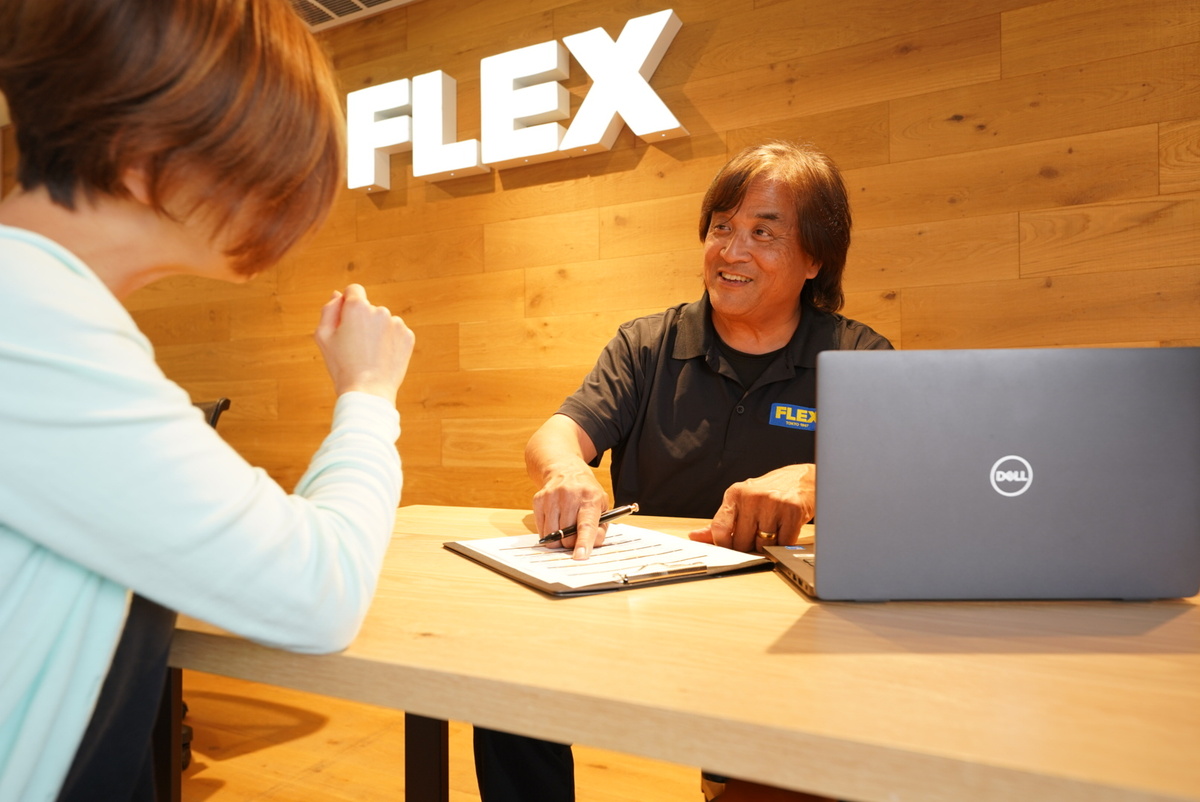
Showroom-Quality
To get a showroom-quality paint job, the body shop needs to remove all of the parts, repair any damages, sand everything smooth, paint the parts individually with high-quality paint, and reassemble the truck with new seals, moldings, trim pieces, and other parts prone to damage. The paint quality will be the best on the market, like PPG, DuPont, BASF, Sherwin Williams or Axalta. The paint process will include primer, a color coat, and a clear coat for added protection. While showroom quality will never be the same as an OEM paint job, it will reflect quality and offer a long-lasting color.
Paint types also affect the cost. There are metallic, pearls, flats, multiple colors, and extra graphics or pinstriping that can raise the cost. Today, a trend is to paint trucks using textured bed liner paint with a roll-on brush. It’s not very pretty, but it’s tough, flexible, anti-corrosive, and UV- and saltwater-resistant.
Here are the types of paints available for automotive use:
Single-stage paint
The color and the gloss are in one formula and painted in one stage.
Basecoat clear coat paint
This two-stage paint consists of a solid or metallic color paint, followed by a clear coat for UV protection.
Tri-coat or multi-stage paint
This paint consists of a base coat, a second translucent coat with pearls or enhancements, like color-changing chameleon paints (flip-flop paint), followed by a clear coat. It’s the most expensive paint and is usually found on high-end cars.
Prep work
Even if your truck is in good condition, repairs may still be needed. If there are any dents or even small dings on the body, you will need to repair them before you paint them. If the metal is not smooth, even the smallest ding can keep paint from completely covering a spot, resulting in a place where water can get to bare metal and rust to start. Before applying the paint, every part must be clean and free from dirt and dust.
Labor rates
AAA reports that nationwide labor rates range between $47 an hour up to $217 an hour depending on the body shop location and whether it’s a dealership body shop or an independent shop. Regardless, the following are some average charges you may expect to find at a body shop.
- Paint Labor – $50 per hour
- Body Labor – $50 per hour
- Paint Materials – $32 per hour
- Electrical – $98 per hour
- Mechanical – $98 per hour
- Frame / Structural – $60 per hour
- Fabrication – $60 per hour
- Fiberglass – $60 per hour
- Mount & Balance – $26
- Glass – $60 per hour
Application Method
Spraying in a paint booth is the most common way to apply a coat of paint to your vehicle. Here are some of the most common paint application methods:
Air-atomized Spray
This uses a traditional spray gun that compresses air with the paint for a pressurized mist.
Airless Spray
This sprays the paint at a lower velocity without the compressed air.
Electrostatic Techniques
The paint is charged with high voltage that causes it to become attracted to the part.
High-volume, Low-pressure (HVLP)
This technique combines the paint with compressed air at a much lower velocity than traditional air-atomized spray.
Brushing
This low-tech paint application produces a low-quality finish that may include visible brush marks.
Dipping
The dip method means dipping the parts in a paint tank. This is more for primers or for covering parts with a protective coating and best for small parts.

Additional Features and Customization
The difference between a stock Tacoma and yours may be the customization you add. Here are some common customized parts you may want to add to your Tacoma:
- Bumpers
- Bull Bars
- Brush Guards and Grill Guards
- Bed Rails
- Step Bars
- Running Boards
- Grilles
- Lift Kits
- Lights
- Wheels
- Tires
- Exhaust parts
- Winches
Location and Paint Shop
As you may have already guessed, the location of the body shop is instrumental in determining the project’s overall cost. You would expect the price of painting a car to be higher in a dense metropolitan area like New York City or Los Angeles. Likewise, the more rural or less populated areas with body shops would be less expensive. However, the smaller the area, the less likely the shop is to have the most advanced equipment, which can make a difference in the quality of the job.
Conclusion: Better To Buy a Painted Toyota Tacoma Than To Paint One
With so many variables to choose from and the knowledge and expertise needed to get a satisfactory paint job on your Tacoma, it may be best to consider buying a repainted Toyota Tacoma or hiring a professional to paint your Tacoma rather than tackling the job yourself.
Looking to paint your Tacoma?
We are professionals in retrofitting and painting with over 50 years of experience



